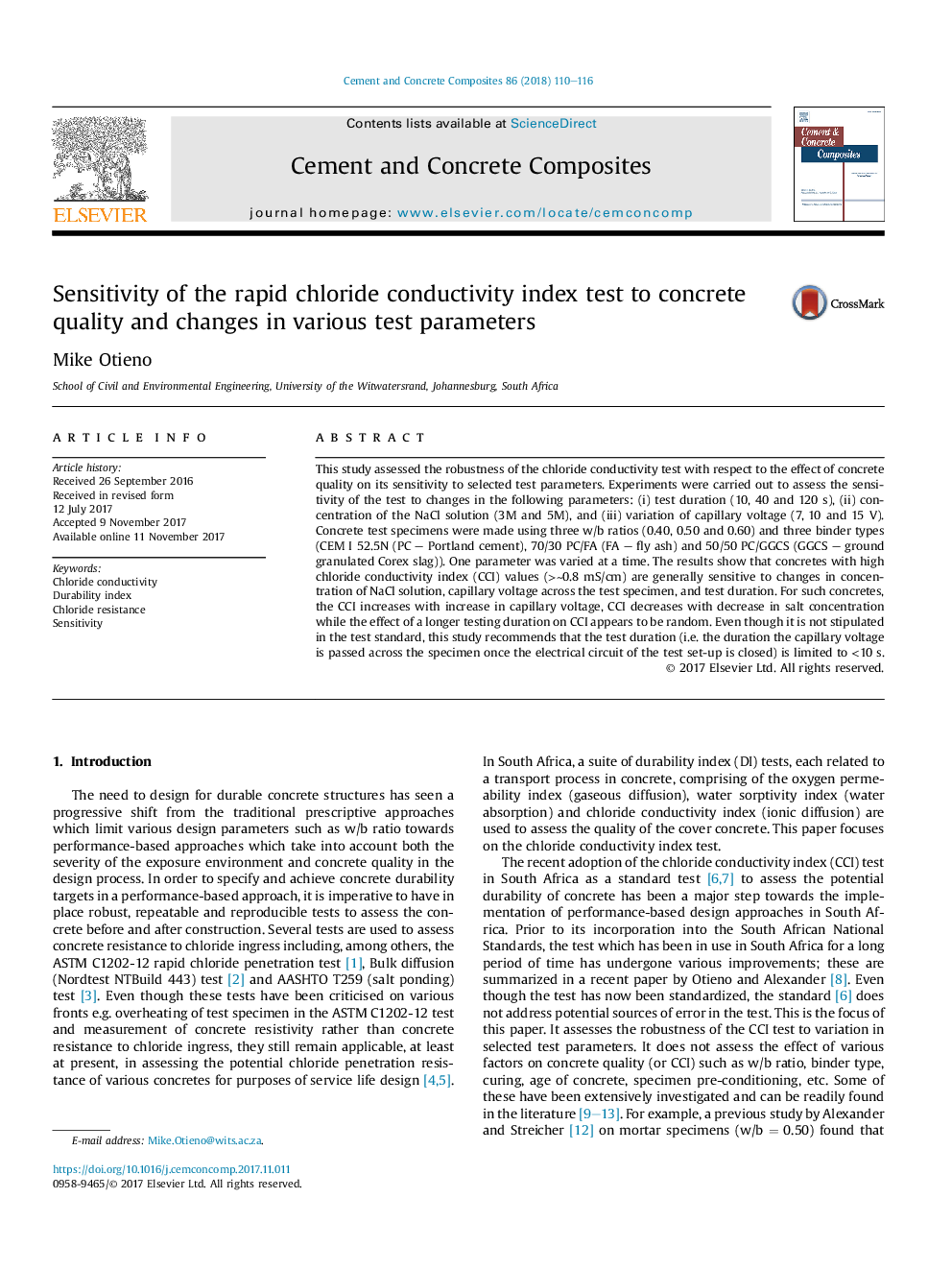| Article ID | Journal | Published Year | Pages | File Type |
|---|---|---|---|---|
| 7884035 | Cement and Concrete Composites | 2018 | 7 Pages |
Abstract
This study assessed the robustness of the chloride conductivity test with respect to the effect of concrete quality on its sensitivity to selected test parameters. Experiments were carried out to assess the sensitivity of the test to changes in the following parameters: (i) test duration (10, 40 and 120Â s), (ii) concentration of the NaCl solution (3M and 5M), and (iii) variation of capillary voltage (7, 10 and 15Â V). Concrete test specimens were made using three w/b ratios (0.40, 0.50 and 0.60) and three binder types (CEM I 52.5N (PC - Portland cement), 70/30 PC/FA (FA - fly ash) and 50/50 PC/GGCS (GGCS - ground granulated Corex slag)). One parameter was varied at a time. The results show that concretes with high chloride conductivity index (CCI) values (>â¼0.8Â mS/cm) are generally sensitive to changes in concentration of NaCl solution, capillary voltage across the test specimen, and test duration. For such concretes, the CCI increases with increase in capillary voltage, CCI decreases with decrease in salt concentration while the effect of a longer testing duration on CCI appears to be random. Even though it is not stipulated in the test standard, this study recommends that the test duration (i.e. the duration the capillary voltage is passed across the specimen once the electrical circuit of the test set-up is closed) is limited to <10Â s.
Keywords
Related Topics
Physical Sciences and Engineering
Engineering
Industrial and Manufacturing Engineering
Authors
Mike Otieno,
